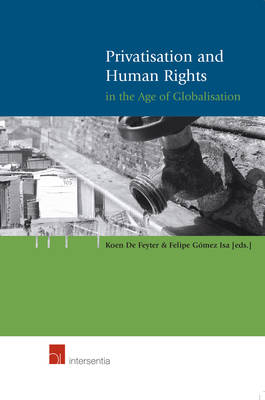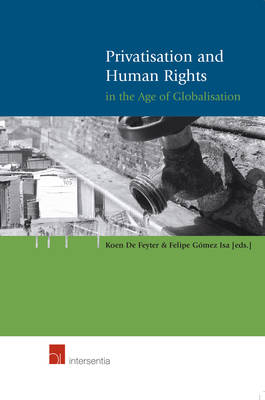
- Retrait gratuit dans votre magasin Club
- 7.000.000 titres dans notre catalogue
- Payer en toute sécurité
- Toujours un magasin près de chez vous
- Retrait gratuit dans votre magasin Club
- 7.000.0000 titres dans notre catalogue
- Payer en toute sécurité
- Toujours un magasin près de chez vous
Description
The growing influence of globalisation, the marked increase in world trade and the perceived necessity of improving their competitiveness in the world trade arena has led countries to reduce State intervention in the economy in order to allow the free market to operate. The privatisation of State provided services and functions and of State owned enterprises fits within such a strategy.
Debates on the effects of privatisation have been on-going for twenty years. They have mainly focused on the financial benefits of privatisation and on the propriety of transferring State “powers” to private hands. An analysis of whether privatisation has an effect on the enjoyment of human rights has, however, rarely if at all been carried out.
This book attempts such an analysis. Is it possible to assess whether privatisation of certain State services or functions has a positive or negative effect on the enjoyment of human rights? Do international human rights obligations impose conditions on the privatisation of services? Can the State be held accountable for human rights violations caused by privatised service providers? Is a privatised service provider or enterprise accountable directly under human rights law? Do victims have remedies? And finally: is there a need for human rights law itself to change in order to adjust to the new division of responsibilities that the privatisation of human rights sensitive services entails?
Spécifications
Parties prenantes
- Auteur(s) :
- Editeur:
Contenu
- Nombre de pages :
- 328
- Langue:
- Anglais
- Collection :
Caractéristiques
- EAN:
- 9789050954228
- Date de parution :
- 25-01-05
- Format:
- Livre broché
- Poids :
- 570 g

Les avis
Nous publions uniquement les avis qui respectent les conditions requises. Consultez nos conditions pour les avis.






